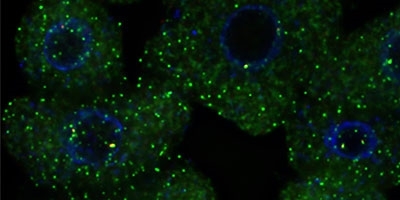Controlling gene regulation using epigenetics

In this research theme we are exploring how plant genomes are regulated and evolve to give rise to plant traits which are adapted to their environments for example by controlling their flowering time or response to stress.
Some of the methods of regulation we are investigating are beyond the codes of the genes themselves, a mechanism called epigenetics, which allows genes to be switched on and off in a manner that can be inherited. Our research has been improving the understanding of how this mechanism works.
Other ways of regulating of plant genomes is via large scale disruptions to the genome itself, for example caused by genome duplication which, as the name suggests, results in two or more copies of every gene.
Genome duplication can result in adaptation as the different copies of a gene can take on different roles through evolution. How these complex duplicated genomes are regulated, interact and are inherited is something that we are exploring in our research.
This research is not only fascinating but also gives us insights into how plant traits are inherited and evolve through genome regulation. This in turn will help us to understand how we can use this information for breeding plants, including crops, which are better fitted to our changing environment and to some of the more extreme environments they may need to be able to cope with in the future.
Selected publications from ‘Controlling gene regulation using epigenetics’
2021
- Nurse cell-derived small RNAs define parental epigenetic inheritance in Arabidopsis
- R-loop resolution promotes co-transcriptional chromatin silencing
2020
- Direct ETTIN-auxin interaction controls chromatin states in gynoecium development – Kuhn et al
- The Arabidopsis epigenetic regulator ICU11 as an accessory protein of Polycomb Repressive Complex 2 – Bloomer et al
- Reduced chromatin accessibility underlies gene expression differences in homologous chromosome arms of diploid Aegilops tauschii and hexaploidy wheat – Lu et al
- DNA Methylation and Histone H1 jointly repress transposable elements and aberrant intragenic transcripts – Choi et al
2019
- Natural depletion of histone H1 in sex cells causes DNA demethylation, heterochromatin decondensation and transposon activation – He et al
- Natural Variation in TBP-ASSOCIATED FACTOR 4b Controls Meiotic Crossover and Germline Transcription in Arabidopsis – Lawrence et al
- Two Auxin Response Elements Fine-Tune PINOID Expression During Gynoecium Development in Arabidopsis thaliana – Kuhn et al
- VERNALIZATION1 controls developmental responses of winter wheat under high ambient temperatures – Dixon et al
- Auxin Response Factors promote organogenesis by chromatin-mediated repression of the pluripotency gene SHOOTMERISTEMLESS – Chung et al
2018
2017
- Distinct phases of Polycomb silencing to hold epigenetic memory of cold in Arabidopsis – Yang et al
- Arabidopsis FLL2 promotes liquid-liquid phase separation of polyadenylation complexes – Fang et al
- DDM1 and Lsh remodelers allow methylation of DNA wrapped in nucleosomes – Lyons and Zilberman
- Evolution of flower colour pattern through selection on regulatory small RNAs – Bradley et al
